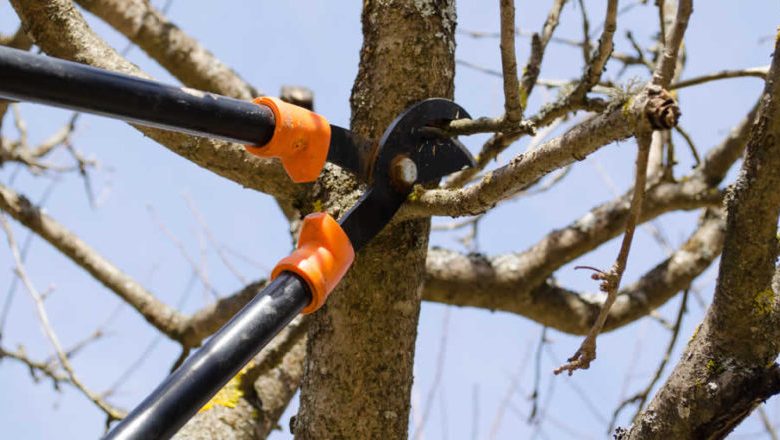Keeping Your Trees Healthy With Proper Trimming Techniques

Trees offer a wealth of short and long-term benefits. From a sustainability standpoint, they are natural air purifiers absorbing the carbon dioxide you and I expel and fill our environment with life sustaining oxygen. They don’t just produce oxygen; they minimize greenhouse gases and utilize our CO2 for their own life force. Trees also provide shade for animals, humans, homes and even help reduce our stress. Trees are just as alive and necessary to our existence as the water we drink.
Their limbs grow and can get damaged by various plant diseases over time. If not properly trimmed in a healthy way by a professional tree removal service, their health can deteriorate.
Just as important as tree trimming is providing your landscaping trees with a dose of deep root tree fertilization to keep the roots as healthy as the limbs. Regular pruning fosters healthy growth of your trees. Healthier trees on your property not only beautify your neighborhood but keep clean fresh oxygen in the air we breathe. They are part of our circle of life.
What About The Decaying Tree Stumps?
Tree stump grinding is the process of grinding down tree stumps and roots with specialty equipment to prevent them from becoming hosts to harmful pests and other organisms. Many of these insects can develop into colonies and grow to be a nuisance for your lawn and other plants. Just as important as trimming trees is to address the decaying tree stumps by getting a tree stump removal service to clear away any decaying tree roots and stumps. Often the same people that you can hire for the tree trimming and fertilization have equipment for stump and root grinding.
Proper Trimming Techniques
Pruning is performed to remove dead or dying branches. It also helps improve light and air circulation in your garden.
When it comes to pruning thin and small limbs, experts advise cutting them from about a quarter inch above a new bud oriented towards the outside of the tree. Take note that you should also cut most branches at a 45-degree angle.
This technique encourages better growth for any new limbs. The new limbs will also be more resistant to diseases and water damage as they age. Most qualified arborists recommend older, damaged branches be removed properly from your trees.
Tackling thicker branches is a little more complex. It involves:
Making the first cut at about 18 inches above the trunk starting at the underside of the branch. Keep in mind that the cut should only be done halfway through the branch’s diameter.
The second cut at the top side of the branch should be about 1 inch from the first cut aiming your tool 45 degrees in a downward direction towards cut number one.
Find the trunk’s branch collar, which refers to the stem tissue located at the base of the branch that you’re removing to begin your measurement. This is characterized by a rougher bark texture and a subtle swelling.
Perform the final cut at a 45-degree angle just outside the branch collar.
This maintenance task is best performed during late winter. This dormant season is ideal because it encourages new growth in time for spring. And because there aren’t leaves on the branches, you’ll be able to inspect if a branch better and determine if the branch is healthy or needs to be trimmed.
In addition to trimming and pruning trees, deep root fertilization is recommended to keep your trees healthy. Tree fertilization provides nutrients and minerals designed to encourage the healthy growth of your trees. In most Northern areas, the best time to fertilize trees is from fall to the middle of spring.
To maximize the potency of a fertilizer, make sure that you’re fertilizing the entire root system. It must also be placed beneath any surrounding plants and grass don’t compete with your trees for nutrients.
Why Hire A Tree Removal Service
Trimming trees can be dangerous, depending upon the height of the tree. It also takes the right tools, skills and a keen eye to identify the branches that needs to be trimmed. The difficulty of pruning also depends on what kind of tree you’re dealing with. Each species has its own trimming protocol.
Additionally, there’s the fertilization chemistry. A properly trained tree removal service often has access to an arborist to help them blend the right mix of fertilizer, tree nutrients, phosphates and chemistry PH for the trees they are treating. Too much of any one component can be hazardous to the tree itself and the animals that may call your yard home.
Make sure the company hire also has the proper credentials, insurance, and a proven track record.

